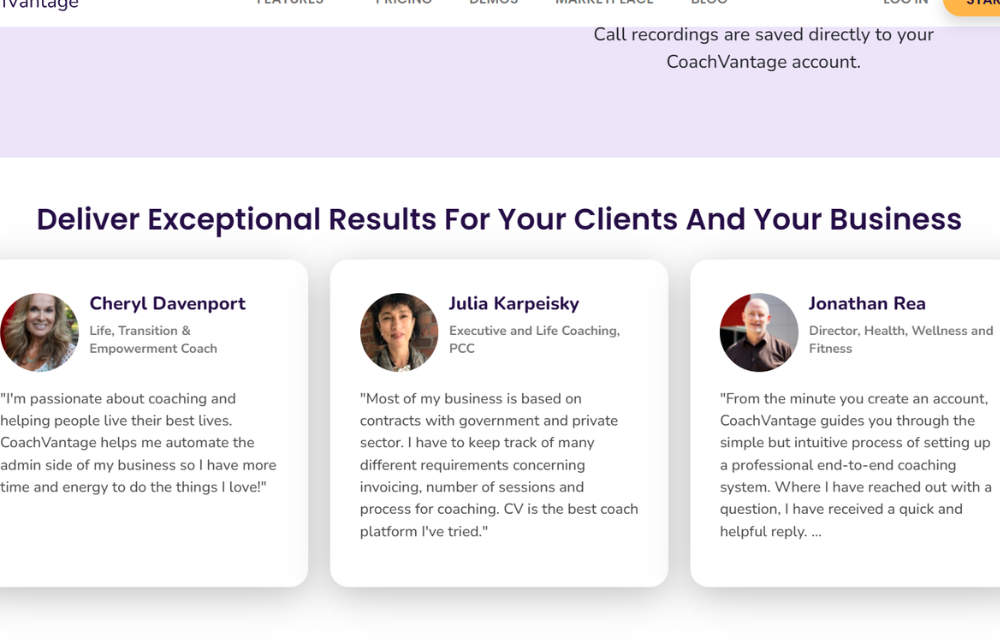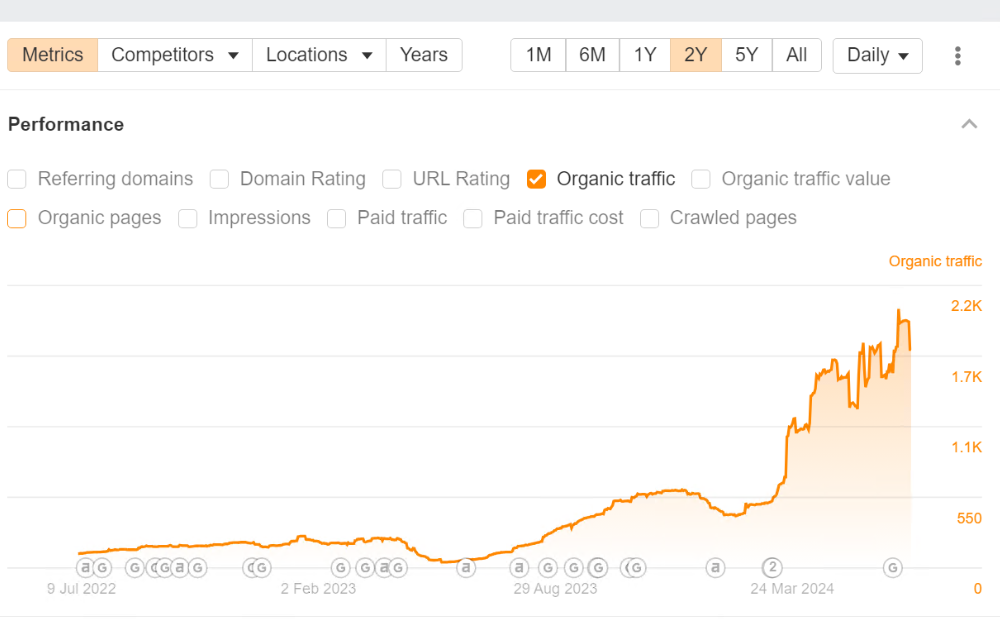Starting a software startup in Singapore presents a unique opportunity to leverage the country's robust tech ecosystem and business-friendly environment. With its strategic location, advanced infrastructure, and supportive government policies, Singapore is an ideal hub for tech entrepreneurs.
In 2023, Singapore's early-stage emerging tech startups experienced a significant increase in funding, reaching US$402 million. Compared to US$253 million in 2022, this marks a 59% year-on-year growth.
But what exactly does it take to start a tech startup in Singapore?

To answer that question, I spoke with Glen Oliveiro, the Founder of coaching software CoachVantage. While the company was founded in Singapore, it has gone on to serve coaches from all over the world since its inception a decade ago.
In this article, Glen will guide you through the essential steps and considerations for launching your software startup in this dynamic market.
From talking about the initial stages like company incorporation and establishing a solid legal and operational framework for your startup, to discussing the importance of forming a capable team and setting up efficient internal processes, this guide will navigate the nooks and crannies of starting your starting your own tech company in Singapore.
Let’s delve in, shall we?
What made you want to start a software company in Singapore?
Ten years ago, I discovered a group called The Foundation, which helps entrepreneurs start software businesses. Their mission intrigued me. Although I wasn't initially sure what specific area I wanted to focus on, their guidance helped me identify pain points that could be addressed. As part of my training, I explored various industries, from private schools to assisted living facilities.
During this period, I met a coach and learned about her work. I noticed that the tools she used were cumbersome and realized there was a market for better solutions. This discovery led me to develop an MVP (Minimum Viable Product) software that addressed key pain points, such as tracking coaching hours and taking notes.
About nine years ago, I created my company as a Limited Liability Partnership (LLP) as a solo founder, aiming to enter the Software as a Service (SaaS) space and build a platform for coaches.
And just three years ago, I transitioned my company from an LLP to a private entity. And since then, the software has grown significantly.
Key steps to starting a tech company in Singapore
1. Research and define your niche
This comes as no surprise.
You need to do your own research to find a niche with a pain point you can help solve. Businesses, after all, exist to help people address these issues.
Calendly was built to help streamline the appointment scheduling process. Workstream was created to help franchisees and quick-service restaurants (QSRs) streamline the recruitment of hourly workers. CoachVantage, was conceived with the end goal of helping coaches manage all aspects of their business on a single platform so that they can focus on what they do best - coaching.
Finding a niche that you and your future customers care about is the first step to any successful software company.
2. Company registration and licensing

Starting a company in Singapore is very straightforward. The country is known for its efficient and conducive environment for entrepreneurs. You can complete the entire registration process online through the Accounting and Corporate Regulatory Authority (ACRA) website.
To begin, you will need to create an account on the ACRA portal, BizFile+, and submit your application. This involves choosing your business structure, which could be a sole proprietorship, partnership, or a private limited company, among others. You will also need to provide details such as business name, business activities, and personal information of owners or directors.
While specific permits are not generally required for software startups, you will need to set up business bank accounts and define contractual terms of use for your software. Ensuring that these terms are clear and legally sound is crucial to protect your business and your clients.
This is especially important in parts of the world with incredibly strict data protection laws. For example, the General Data Protection Regulation (GDPR) within the European Union (EU) can make running a SaaS business a bit more complicated given that you cannot randomly collect personal information.
3. Legal and administrative requirements
Starting a software startup in Singapore involves understanding and navigating the legal framework and administrative processes. One of the first decisions to make is the shareholding structure and type of business entity to incorporate. The most common options are Private Limited Company and Sole Proprietorship. A Private Limited Company is often preferred due to its limited liability protection and ability to raise capital from investors.
Once the business structure is determined, it's essential to collaborate with a law firm to draft comprehensive terms of use for your software. These terms should clearly define how the software can be used and outline the responsibilities of the users and the service provider.
I worked with a law firm to not just establish a detailed terms of use document, but to also establish how data will be collected, used, and stored in compliance with the GDPR. Ensuring GDPR compliance protects personal data and maintains user privacy, which is particularly important if you serve customers in the EU.
Properly conveying the terms of service to your users is vital. This involves creating clear and accessible documentation that sets the right expectations and legally safeguards your business.
4. Funding sources for software startups
Starting a software startup in Singapore can be a rewarding journey, especially if you choose to go the route of being fully self-funded. As a solo founder, I have decided to keep my startup self-funded and currently have no immediate plans to pitch for external funding. One of the main challenges with seeking investors is their expectation for founders to be focused on profits and investors, which was not feasible for me at the time.
The top challenge for any self-funded startup is achieving self-sustainability. In the early years, my primary focus was on product development. As a solo founder, it was crucial to channel resources appropriately and at the right time to ensure growth. Over the last few years, I have put more effort into scaling the business.
Compared to competitors with venture capital (VC) funding, I can push out new features quicker. With a lean team, I have the power to drive initiatives based on what is right for the business rather than focusing solely on generating profits and returns for investors. This allows me to spend more time speaking to customers and shaping the platform to meet their needs.
Operating as a self-funded startup means that while I can act swiftly, I must also be precise in delivering features that are most needed and make sense for the business.
5. Building your team
Building a team for a software startup in Singapore involves strategic decisions and careful selection of talent. I began with my son, who served as the UI designer and helped lay the foundation for the platform's design. Initially, we worked with a team in Singapore that outsourced the technical work to build the software. However, over time, I found it more cost-effective to engage directly with developers rather than relying on subcontracted companies.
After developing the first MVP, I dedicated considerable effort to finding developers through online platforms. Establishing a contract-to-hire relationship gave me better control over managing the team's time and aligning their work with the platform's requirements. This approach also facilitated clearer communication of what the platform needed to achieve.
Another significant step was converting the company to a Private Limited (Pte Ltd) entity to leverage Singapore's hiring benefits, such as progressive wage credits from the Ministry of Manpower (MOM). My goal was to build a team with generalist skills, focusing initially on designers while recognizing that engineers and developers command high salaries in Singapore.
For cost reasons, I continued working with contract-for-hire developers, often from other parts of Asia where salary demands are lower. The key qualities I looked for included strong technical abilities, proficiency in English, effective communication skills, flexibility, and the ability to translate business objectives into backend code.
Building the team wasn't always smooth. I learned through experience and gradually improved at finding the right people. The contract arrangement proved beneficial, as it allowed for easier transitions when necessary. Contractors understood the temporary nature of their engagement, making parting ways less complicated compared to full-time employees.
6. Set up efficient internal processes and systems
Setting up efficient internal processes and systems is crucial for the success of any software startup. Establishing standard operating procedures (SOPs) and implementing the right software systems can streamline operations and enhance productivity.
Gain access to the Microsoft 365 suite with GoDaddy to help set up efficient collaborative processes.
The cost barrier to entry for Software as a Service (SaaS) businesses is relatively low compared to industries like food and beverage (F&B). Almost everything can be managed online, making it accessible for new entrepreneurs. One of the most important tools to have is a project management system. Over time, I have experimented with various tools and settled on a few key ones that have proven invaluable.
Currently, we use Confluence for documentation, Jira for task management, GitHub for managing the code base, and Miro and Figma for design and business flow visualizations. From a management perspective, corporate account services like Sleek help with corporate secretary duties and ensure proper accounting practices, including making payments to team members.
Given our relatively small team, SOPs are straightforward. We do not require separate tools to manage different aspects of the business. For customer communication, we use Product Fruits to efficiently deliver updates. As we scale, maintaining these processes and systems will continue to support our growth without significant issues.
7. Create an online presence to market your SaaS company
Getting a domain name and hosting service are the first steps to establishing an online presence.
Getting your domain name
To establish a strong online presence for your SaaS company, start by purchasing a domain from a provider like GoDaddy. GoDaddy offers a variety of domain options to help you find the perfect name for your business. This can be easily done on their domains page.
Purchasing a good domain name is crucial when establishing an online presence. This is because it serves as the foundation of your brand's digital identity. A memorable, relevant, and easy-to-spell domain name enhances brand recognition and credibility. It also improves search engine optimization (SEO), making it easier for potential customers to find you online.
Secure reliable web hosting for your website
Next, secure reliable web hosting to ensure your website runs smoothly and can handle your business's demands. GoDaddy provides various hosting plans tailored to different needs, which you can explore and purchase on their web hosting page.
Securing a good web hosting provider is crucial when establishing an online presence because it directly impacts the reliability, speed, and security of your website. A reputable provider ensures minimal downtime, fast loading times, and robust security measures. These are all essential for maintaining user trust and satisfaction.
Moreover, quality hosting services often come with excellent customer support and scalability options. This allows your website to grow seamlessly as your business expands. In a competitive digital landscape, these factors can significantly influence your website's performance and, consequently, your overall brand reputation and success.
Finally, enhance your business communication by purchasing professional email addresses that match your domain. Obtaining a professional business email is essential when establishing an online presence because it enhances your brand's credibility and trustworthiness.
A business email that aligns with your domain name (e.g., yourname@yourbusiness.com) portrays a polished and legitimate image to clients, partners, and stakeholders, distinguishing your communications from those using free, generic email services.
It also offers enhanced security features and organizational benefits, such as integrated calendars and collaborative tools, which are vital for maintaining professional communications and efficient workflow. Investing in a professional email service demonstrates your commitment to your business's professionalism and reliability.
8. Build a professional website
Creating a professional website is a crucial step for any software startup. Your website should include essential elements such as feature pages that detail the capabilities and benefits of your software, testimonials from satisfied customers that provide social proof, and a comprehensive FAQ section to address common questions and concerns. These elements not only inform potential customers on what the business does but also help build trust and credibility.

The importance of social proof on your site cannot be overstated. Testimonials, case studies, and user reviews serve as powerful tools to build credibility and reassure potential clients about the quality and reliability of your software. Incorporating these elements into your website can significantly enhance its effectiveness in converting visitors into customers. As highlighted in a Forbes article, a professional website serves as the cornerstone of your digital presence, helping you connect with customers and establish your brand.
GoDaddy’s code-free website builder lets you start building your custom website for free!
To streamline the website creation process, consider using tools like GoDaddy’s site builder. These tools offer user-friendly interfaces and customizable templates, allowing you to create a polished and functional website even if you lack technical expertise. A well-designed website not only enhances your online presence but also supports your marketing efforts and business growth.
What is the best marketing channel for software companies?

In the niche market of life coaching, identifying the most effective marketing channels is crucial. Through extensive channel experimentation, I have found that organic marketing stands out as the best long-term strategy. High-ranking articles continue to drive interest and attract visitors to our site over time, providing a lasting impact.
In addition to organic marketing, running paid ad campaigns during specific periods, such as International Coaching Week, has proven beneficial. These campaigns help generate immediate visibility and attract targeted traffic.
Collaborating with third-party sites to increase awareness is another effective strategy. By contributing content to related sites, we can reach a broader audience. Engaging with coaching institutions and training schools also helps in fostering mutual goals of success for coaches. These partnerships are instrumental in building credibility and expanding our network.
Furthermore, we distribute newsletters through platforms like the International Coaching News to keep our audience informed and engaged. This multi-faceted approach ensures we effectively reach and resonate with our target market.
Start your software startup in Singapore with GoDaddy today!
Starting a software startup in Singapore is a promising venture, thanks to the country's supportive business environment, strategic location, and robust tech ecosystem.
Aspiring software startup founders can stand to gain a lot by following in Glen’s footsteps. By following the essential steps of company incorporation, securing necessary licenses, and developing a comprehensive business plan, they too, can lay a strong foundation for their startup.
GoDaddy can play a vital role in this journey by providing essential services like domain registration and web hosting, ensuring your software company has a strong online presence. This foundation will help attract and retain clients, driving your startup’s success in the global competitive tech market.
Reach out to GoDaddy to start your entrepreneurial journey today!








